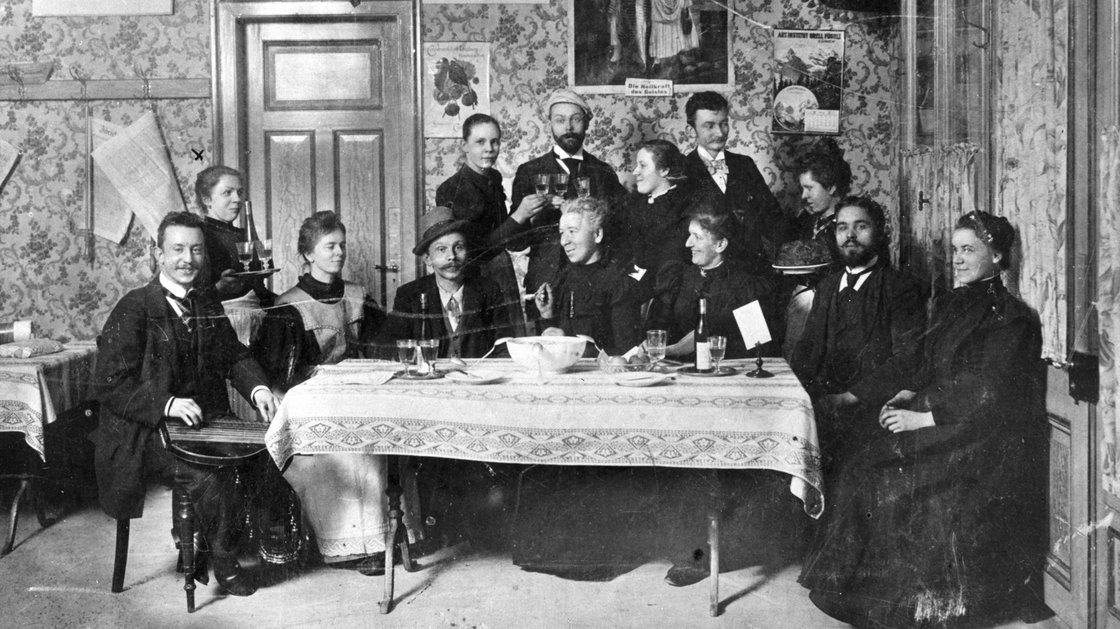I want to thank Professor Apollonio for coming to last night’s rehearsal and re-rooting us in the Russian context of Chekhov and Uncle Vanya. As I said at the start of rehearsals, as a production dramaturg one is constantly hoping to become enough “expert” to support the work until the next play, the next period, writing and performance style when one quickly gathers a different sent “expertise” as she moves into the next project. So I am utterly grateful for the support of scholars like Professor Apollonio and John Wright (who came in last week to work with us on pronunciation) for providing expertise that is grounded in years of focused research and direct experience with our playwright and his culture and language.
It’s especially gratifying to be able to fact-check some of the more oblique references within the text. For example, learning that the Russian root of Yelena’s name means “lazy”, reminding us to consider that the absence of Sonya’s mother is the long-range catalyst for events in the play itself, and how Chekhov casts beauty and love in the figures of Yelena and Sonya.
I also thought of two moments where my own reading felt less than secure given the many layers of translation (language, time period, & culture) Baker’s text has gone through. So I sent Carol a follow-up message after last night’s rehearsal, and I’m very glad.
I first asked her about that moment early in Act I when Vanya goes on his first tirade about the professor (pg. 31) and he quotes from an unknown source:
With tired minds and furrowed brows/We write ode after ode/Not for ourselves/And not for the praise we’ll never hear.
I’ve been operating as if Vanya is quoting the Professor’s own hackneyed writing especially as he follows this line with “I feel sorry for the paper.” But Professor Apollonio informed me
Vanya quotes (inexactly, but recognizably) an 18th-century sentimentalist writer Ivan Dmitriev [from Jules — forgive the Wikipedia link but all the other materials are in books or behind paywalls]. These are the 2nd and 3d lines from a satirical poem mocking sycophantic (and boring) ode writers of his day (from the collection “At Second Hand” [Chuzhoi tolk]). “These writers slave away at their writing, but their hard work is not appreciated.” Your translation gives the basic meaning. The quote itself has a more stuffy and archaic feel (“having strained our minds, having furrowed our brows, with zeal we write…”), so the actor could feel free to lay it on thick. Since the professor writes academic prose, not poetry, the quote adds a thicker layer of bitterness and satire by referring to odes from 100 years ago.
So I got the basic purpose of Vanya’s quote correct but not the reference. Vanyas please make note of this change.
The second question — attention Phil — was in reference to a quote slung by the Professor himself at the end of Act IV when he’s parading himself out of the house. He says,
He who dwells in the past shall have his eye plucked out.
In this case it didn’t seem to be the Professor’s own prose that he was quoting but I was unsure if it was referencing material from known poet or writer. I’d been operating under the impression that it might be a kind of folksy saying or proverb and Professor Apollonio confirmed that reading:
it’s a Russian idiom. Your translator has rendered it fairly literally–but of course it’s hard to make this line work. The basic meaning is “let bygones be bygones.”
And that information just adds to the irony and irritation I think we’re encouraged to feel for the Professor as he leaves the scene and the estate. He’s so full of forgiveness for all the disaster his presence has largely set into motion. Not quite as ire-inducing as the “Do something with your lives” line. But close.
Again, a massive thanks to Professor Apollonio. If you have have other questions that dawned on you after last night or if you have them about translation context or cultural context, feel free to email her directly at flath@duke.edu or email me and I’ll pass the query along. You can also catch her “What Would Dostoyevsky Do” columns in The Chronicle every other Tuesday.


